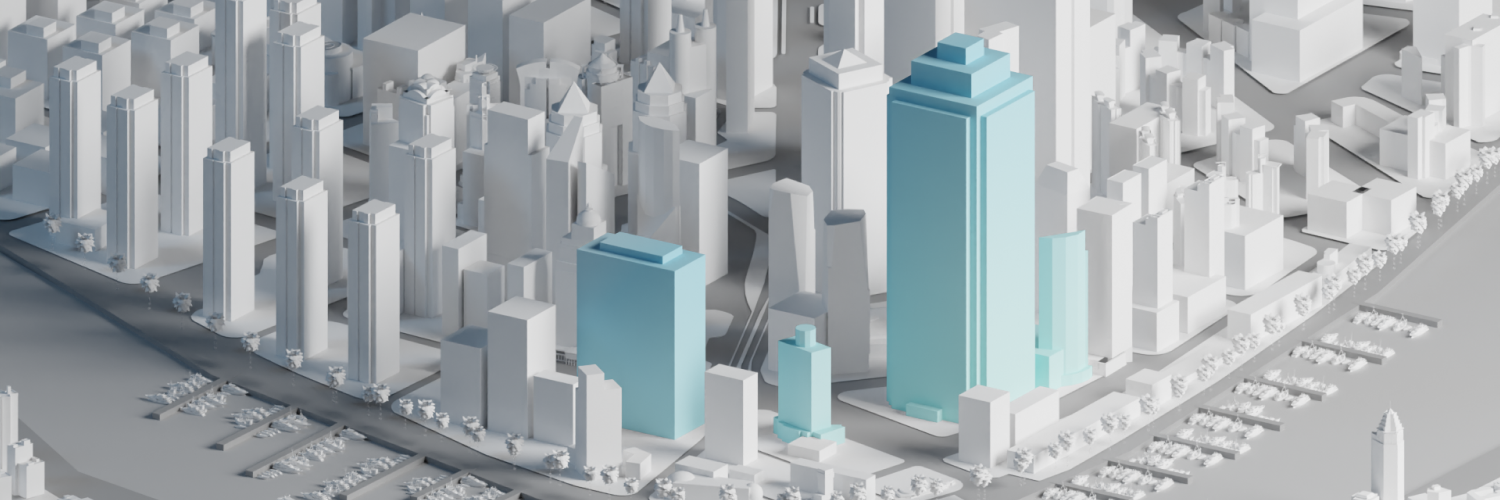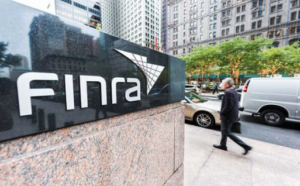Some of the most common ways available to invest today are in stocks and bonds, real estate, and cryptocurrency. Deciding which investments are suitable for personal financial growth depends on the available capital, risk tolerance, and potential income.
Real estate investing is a
popular choice. It allows for regular, predictable passive cash flow, such as a monthly rent. Plus, the private real estate market is less volatile than the stock market and commodities like oil. That is, it is less susceptible to sharp price fluctuations. For example, a large Federal Reserve Bank of San Francisco
study covering 145 years shows that unleveraged residential real estate yields more than stocks with less risk.
At the same time, over the past 15 years, housing prices in most countries
have risen substantially. According to
Eurostat, in the fourth quarter of 2022, house prices in the eurozone rose by 2.9% in the euro area and by 3.6% in the EU compared with the same quarter of the previous year.
In the EU in 2021, 10.4% of the population in urban areas
lived in a household with total housing costs of more than 40% of disposable income (what it calls the housing cost overload rate). In this scenario, how can an average person afford to buy an apartment as an investment?
With the advent of tokenization, things have changed, and anyone can invest in real estate even with $50.
How It Works
Access to residential real estate investing for small investors is made possible by blockchain technology (via tokenization) and fractional ownership.
Tokenization is the process of representing an asset’s price, such as real estate, through digital tokens on a blockchain (like Ethereum, Avalanche, Cardano, and Polygon, just to name a few). It allows fractional ownership, so the owner of even one token would be the official owner of that property. For example, a $300,000 mansion can be “split” into 6,000 property tokens at a cost of $50 each. And even with a share of $50, the investor will have all the rights to the real property.
Once real estate is tokenized, these digital property tokens can be sold to investors on a digital exchange. This makes real estate more affordable and enables more people to invest in it. Also, real estate developers can easily tokenize new projects to raise money even before they are completed.
To protect investors, a special-purpose vehicle (SPV) or special-purpose entity (SPE) is created for each property, often in the form of a limited liability company (LLC) in the USA. The LLC is divided into digital tokens, representing fractional ownership. A smart contract is established on the blockchain to ensure ownership and compliance with security laws. Investors receive tokens that reflect their fractional investment in the real estate property.
That is, previously illiquid assets such as real estate can be quickly sold at a price close to the market. In a normal situation, the process of selling real estate can take up to half a year.
Successful Real Estate Tokenization Examples
According to the Binaryx study, in 2018, the USA St. Regis Aspen hotel owner, Elevated Returns, sold ownership of the property using tokens. They created SEC-compliant Aspen Coins worth $1 each and conducted a successful $18 million real estate offering on the Ethereum blockchain. By using secure and transparent blockchain technology, they divided the St. Regis Resort into tokens and sold them to multiple buyers.
In 2020, the community of Luneburg, an ancient town in Germany, successfully raised $1,500,000 through a security token offering, the Lueneburg Token. Instead of using popular blockchains like Ethereum, they opted for Stellar. This decision allowed them to attract a diverse range of investors with different preferences.
In 2022, the Binaryx platform, which I run, provided shared ownership of real estate for 200 people by turning a downtown Bali (Indonesia) apartment into tokens using the Polygon blockchain.
Investors could purchase a portion of the property for a minimum investment of $50. The startup utilizes a new type of company called a decentralized autonomous organization (DAO) limited liability company (LLC) under the recent legislation of the American state of Wyoming. Unlike a traditional LLC, a DAO LLC uses smart contracts. These smart contracts represent the operating agreement and enable token holders to become shareholders, facilitating asset transfers and simplifying fractional ownership by providing a straightforward legal process.
Real Estate Tokenization and Fractional Ownership Key Benefits

Tokenization and fractional ownership offer significant benefits for businesses and individuals alike. Therefore, I believe that further broader adoption of these technologies is inevitable. This could revolutionize real estate ownership for small investors.
By automating processes and using an immutable digital ledger, blockchain reduces costs, increases the speed of transactions, eliminates intermediaries, and provides transparency.
Real estate tokenization enables blockchain-based ownership fractionalization, making the holding of high-value assets more accessible to small investors. This democratization of investment opportunities paves the way for greater inclusivity and wider participation.
Tokenization also opens up the possibility of listing tokenized assets on markets, expanding the buyer pool. This creates a secondary market for trading tokens, enhancing liquidity and providing investors with greater flexibility.
Transparency brings asset ownership, returns, and history to light through open tracking on blockchains. This enhanced visibility reduces investment risks, particularly for foreign assets or those that cannot be physically inspected. Investors can make more informed decisions with greater confidence, mitigating uncertainties and improving overall investment outcomes.
Lastly, tokenization enables the diversification of real estate portfolios with ease. By becoming owners of properties across different parts of the world in just a few clicks, investors can protect their portfolios from localized risks such as natural disasters. This diversification strategy enhances stability and resilience, further safeguarding investments.
- SEO Powered Content & PR Distribution. Get Amplified Today.
- PlatoData.Network Vertical Generative Ai. Empower Yourself. Access Here.
- PlatoAiStream. Web3 Intelligence. Knowledge Amplified. Access Here.
- PlatoESG. Automotive / EVs, Carbon, CleanTech, Energy, Environment, Solar, Waste Management. Access Here.
- BlockOffsets. Modernizing Environmental Offset Ownership. Access Here.
- Source: https://www.finextra.com/blogposting/24478/expanding-horizons-real-estate-investment-revolution-through-tokenization-and-fractional-ownership?utm_medium=rssfinextra&utm_source=finextrablogs
- :is
- $UP
- 000
- 10
- 15 years
- 15%
- 200
- 2018
- 2020
- 2021
- 2022
- 500
- a
- accessible
- According
- across
- Adoption
- advent
- affordable
- Agreement
- alike
- All
- allowed
- allows
- also
- American
- an
- Ancient
- and
- anyone
- Apartment
- ARE
- AREA
- areas
- AS
- asset
- Assets
- At
- attract
- automating
- autonomous
- available
- Avalanche
- average
- Bali
- Bank
- BE
- become
- becoming
- before
- believe
- benefits
- BINARYX
- blockchain
- blockchain technology
- blockchain-based
- blockchains
- Bonds
- Brings
- broader
- businesses
- buy
- BUYER..
- buyers
- by
- called
- Calls
- CAN
- cannot
- capital
- Cardano
- Cash
- cash flow
- changed
- Close
- CNN
- Coins
- Commodities
- Common
- community
- company
- compared
- Completed
- compliance
- conducted
- confidence
- contract
- contracts
- Cost
- Costs
- could
- countries
- covering
- created
- creates
- cryptocurrency
- DAO
- decentralized
- Decentralized Autonomous organization
- Deciding
- decision
- decisions
- democratization
- depends
- developers
- different
- digital
- digital ledger
- digital tokens
- disasters
- diverse
- diversification
- divided
- Downtown
- each
- ease
- easily
- elevated
- eliminates
- enable
- enables
- enhanced
- Enhances
- enhancing
- ensure
- entity
- established
- estate
- ethereum
- Ethereum blockchain
- EU
- Euro
- Europa
- Eurozone
- Even
- example
- exchange
- expanding
- facilitating
- Federal
- federal reserve
- Federal Reserve Bank
- few
- financial
- Flexibility
- flow
- fluctuations
- For
- foreign
- form
- Fourth
- fractional
- fractionalization
- Francisco
- from
- further
- Germany
- greater
- Growth
- Half
- Have
- history
- holders
- holding
- Horizons
- hotel
- House
- household
- housing
- How
- HTML
- HTTPS
- i
- immutable
- improving
- in
- Inclusivity
- Income
- Increases
- individuals
- Indonesia
- inevitable
- informed
- instead
- intermediaries
- into
- Invest
- investing
- investment
- investment opportunities
- Investments
- investor
- Investors
- IT
- just
- Key
- large
- Laws
- Ledger
- Legal
- Legislation
- less
- liability
- light
- like
- Limited
- Liquidity
- listing
- LLC
- made
- make
- MAKES
- Making
- Market
- Markets
- million
- minimum
- mitigating
- money
- monthly
- more
- most
- multiple
- name
- Natural
- New
- normal
- of
- offer
- offering
- official
- often
- Oil
- on
- ONE
- open
- opens
- operating
- opportunities
- or
- organization
- Organization (DAO)
- outcomes
- over
- overall
- owner
- owners
- ownership
- participation
- particularly
- parts
- passive
- past
- People
- person
- personal
- Physically
- platform
- plato
- Plato Data Intelligence
- PlatoData
- plus
- Polygon
- Polygon Blockchain
- pool
- Popular
- population
- portfolios
- portion
- possibility
- possible
- potential
- Predictable
- preferences
- previous
- previously
- price
- Price Fluctuations
- Prices
- private
- process
- processes
- projects
- properties
- property
- protect
- protect investors
- provided
- provides
- providing
- providing investors
- purchase
- Quarter
- quickly
- raise
- raised
- range
- Rate
- real
- real estate
- real estate market
- receive
- recent
- reduces
- reflect
- regular
- Rent
- represent
- representing
- Reserve
- reserve bank
- residential
- resilience
- Resort
- returns
- Revolution
- revolutionize
- rights
- Risk
- risks
- ROSE
- Run
- safeguarding
- same
- San
- San Francisco
- scenario
- secondary
- Secondary Market
- secure
- security
- security token
- Selling
- Share
- shared
- Shareholders
- sharp
- Shows
- significant
- simplifying
- situation
- small
- smart
- smart contract
- Smart Contracts
- So
- sold
- speed
- split
- SPV
- Stability
- startup
- State
- Stellar
- stock
- stock market
- Stocks
- straightforward
- Strategy
- substantially
- successful
- Successfully
- such
- suitable
- susceptible
- Take
- Technologies
- Technology
- than
- that
- The
- the world
- their
- Them
- therefore
- These
- they
- things
- this
- those
- Through
- time
- to
- today
- token
- token holders
- Tokenization
- tokenize
- tokenized
- tokenized assets
- Tokens
- tolerance
- Total
- Tracking
- Trading
- traditional
- Transactions
- transfers
- Transparency
- transparent
- Turning
- type
- uncertainties
- under
- unlike
- urban
- USA
- uses
- using
- utilizes
- vehicle
- via
- visibility
- volatile
- Way..
- ways
- What
- which
- wider
- will
- with
- world
- worth
- would
- Wyoming
- year
- years
- yields
- zephyrnet













